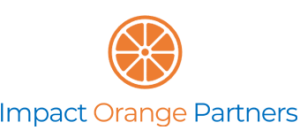Impact ABC
| Carbon footprint | A carbon footprint is the total greenhouse gas (GHG) emissions caused by an individual, event, organization, service, place or product, expressed as carbon dioxide equivalent (CO2e) |
| CDP | Carbon Disclosure Project – a non-profit charity that manages the global disclosure system for investors, companies, states/regions to manage their environmental impacts |
| Climate neutral | Net zero carbon footprint. This can be achieved by reducing all emissions (Scope I, II and III) to zero or by offsetting emissions |
| Double materiality | Investing to tackle climate change has two dimensions:
|
| ESG | Environment, Social, Governance |
| GHG | Greenhouse Gases |
| GIIN | The Global Impact Investing Network, dedicated to increasing the scale and effectiveness of impact investing |
| IIGCC | Institutional Investors Group on Climate Change |
| IMP | Impact Management Project – a collaboration between leading sustainability and impact initiatives. The ‘ABC’ framework assesses the type of impact that investments have on the world. The impact of an SDG outcome is classified as: i) harm caused or likely to cause, ii) ‘Act’ to prevent harm, iii) ‘Benefit’ stakeholders, iv) ‘Contribute’ attributable to solutions |
| Impact Frontiers | A collaboration of investors dedicated to advancing the integration of impact into financial frameworks, processes and decision-making |
| IRIS+ | IRIS+ is the widely accepted impact accounting system used by leading impact investors to measure, manage and optimize their impact. Using IRIS+ also facilitates the comparison of impact information |
| PCAF | PCAF (Partnership for Carbon Accounting Financials) has developed GHG accounting methods applicable to any financial institution |
| PRI | Principles for Responsible Investment – a voluntary and ambitious set of investment principles that provide a menu of possible actions for incorporating ESG issues into investment practice |
| RI | Responsible Investment |
| SBTi | Science-based targets initiative |
| Scope 1,2,3 | Scope 1 emissions refer to greenhouse gas emissions that occur from sources directly controlled or owned by an organization Scope 2 emissions refer to indirect greenhouse gas emissions associated with the purchase of electricity, steam, heat or cooling Scope 3 emissions result from activities of assets that are not owned or controlled by the reporting organisation, but which indirectly affect the organisation in its value chain |
| SDG | Sustainable Development Goals adopted by the United Nations as universal goals to end poverty, protect the planet and ensure peace and prosperity for all people by 2030. There are 17 SDGs and they are integrated |
| SFDR | Sustainable Finance Disclosure Regulation is a set of EU transparency rules on the provision of sustainability information and has been in force since 2021 |
| TCFD | Task Force on Climate-related Financial Disclosures, created by the Financial Stability Board to promote reporting of climate-related financial information. The TCFD has been disbanded in 2023 and the monitoring of the disclosures has been transferred to the International Sustainability Standards Board |
| TNFD | Task Force on Nature-related Financial Disclosures, voluntary initiative for organisations to report and act on nature-related dependencies, impacts, risks and opportunities, modeled on the TCFD |
| Theory of Change | According to the American scientist Carol Weiss, the theory of change is: theory of how and why initiatives work. The set of assumptions that explain both the mini-steps leading to the long-term goal and the relationships between project activities and outcomes that occur at each step |
| UNGC | UN Global Compact, a strategic policy initiative for companies that commit to align and report on their operations and strategies with ten universally accepted principles in the areas of human rights, labour, environment, and anti-corruption |
| WASH | Water, Sanitation and Hygiene |
